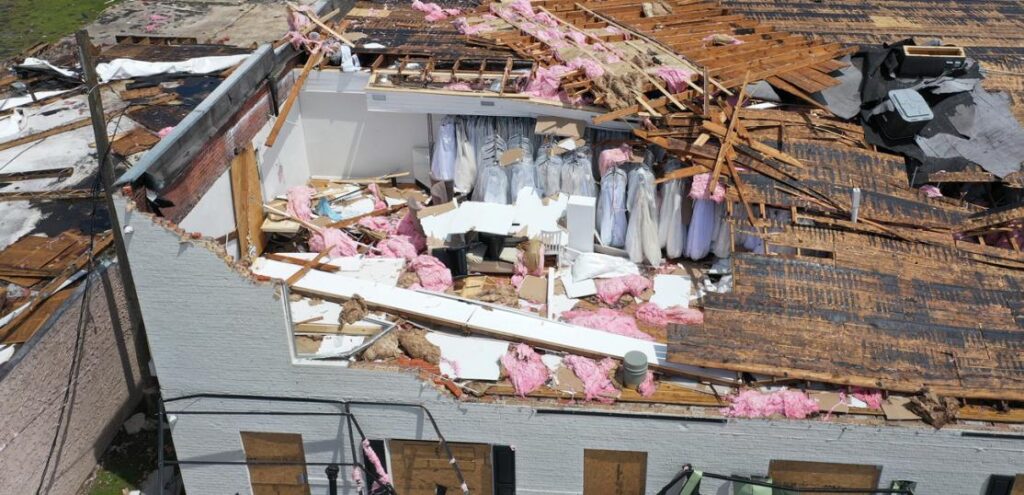Homeowners need to be ready and insured for what’s predicted to be a lively hurricane season.

as Hurricane Laura passed through the area on August 27, 2020 in Lake Charles, La.
© Joe Raedle / Getty Images News
Hurricane Laura was one of the most powerful storms ever to hit the U.S., raging onto the coastlines of Louisiana and Texas on Thursday as a Category 4 storm and putting more than 1.1 million homes in jeopardy from its strong winds and storm surge. Weather forecasters warn Hurricane Laura could just be one of many more to come this hurricane season.
“Homeowners, mortgage lenders, and insurers need to work together to ensure properties are fully protected and insured,” Tom Larsen, principal of insurance solutions at CoreLogic, told Forbes.com. “CoreLogic data has found a correlation in mortgage delinquencies and catastrophes, which could point to a serious issue of underinsurance trends.”
Hurricane season is striking as the National Flood Insurance Program is set to expire Sept. 30. The NFIP provides flood insurance coverage to 22,000 communities across the country and protects property owners against losses from flooding, which is the most common and costly natural disaster in the U.S. The program remains billions of dollars in debt. The National Association of REALTORS® has been strongly advocating for Congress to extend the program. The program has received about 15 short-term gap extensions since 2017. (View NAR’s FAQ on the flood program.)
Above-normal activity in the Atlantic is predicted for 2020 due to warmer ocean temperatures, according to forecasters from the National Oceanic and Atmospheric Administration’s Climate Prediction Center, a division of the National Weather Service. The NOAA predicts a 60% chance of an above-normal hurricane season. The Atlantic hurricane season is from June 1 through Nov. 30
Homeowners who do not have flood insurance—most standard homeowners’ insurance policies do not cover flooding–can face a major financial risk. As Forbes.com reports, a recent survey from the personal finance website ValuePenguin found that 45% of homeowners living in hurricane-prone states have no idea of how much hurricane-related insurance coverage they need to be protected. Further, more than a third believe they are covered under their homeowner’s insurance policy when they are not.
“The coincidence of two catastrophes—a damaging hurricane season and the ongoing global pandemic—underscores the importance of the correct valuation of reconstruction cost, one of the core tenets of property insurance,” Larsen told Forbes.com.
Indeed, Forbes.com notes that the homeowners already affected by a hurricane this year have also felt the effects of the COVID-19 pandemic. Seventy-three percent of those affected by a hurricane so far have also faced wages affected by the coronavirus outbreak through layoffs, furloughs, or reduced pay.
Meanwhile, storm surges from hurricanes can pose significant property damage due to the high winds and flooding. The pressure of power washing up against structures can be extremely damaging—a cubic yard of water weighs about 1,700 pounds, Erik Salna, Florida International University’s associate director for education and outreach at the International Hurricane Research Center, told CBS News.
Source: “Hurricane Laura Threatens 1.1 Million Homes With Storm Surge Damage,” Forbes.com
